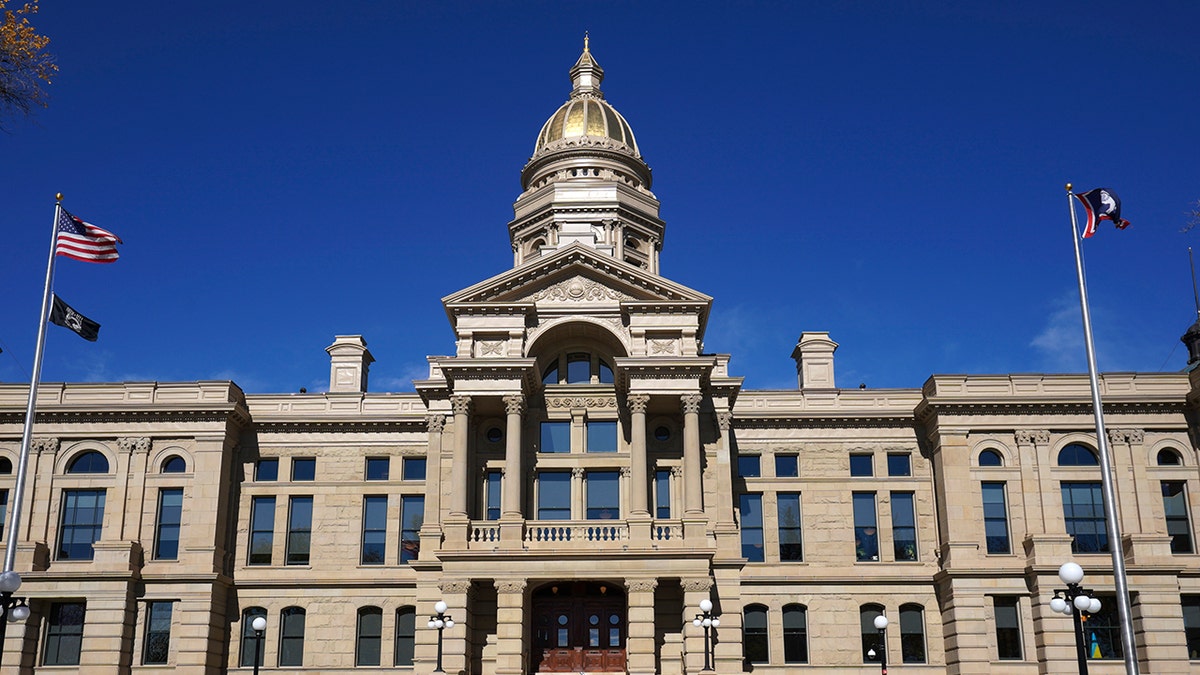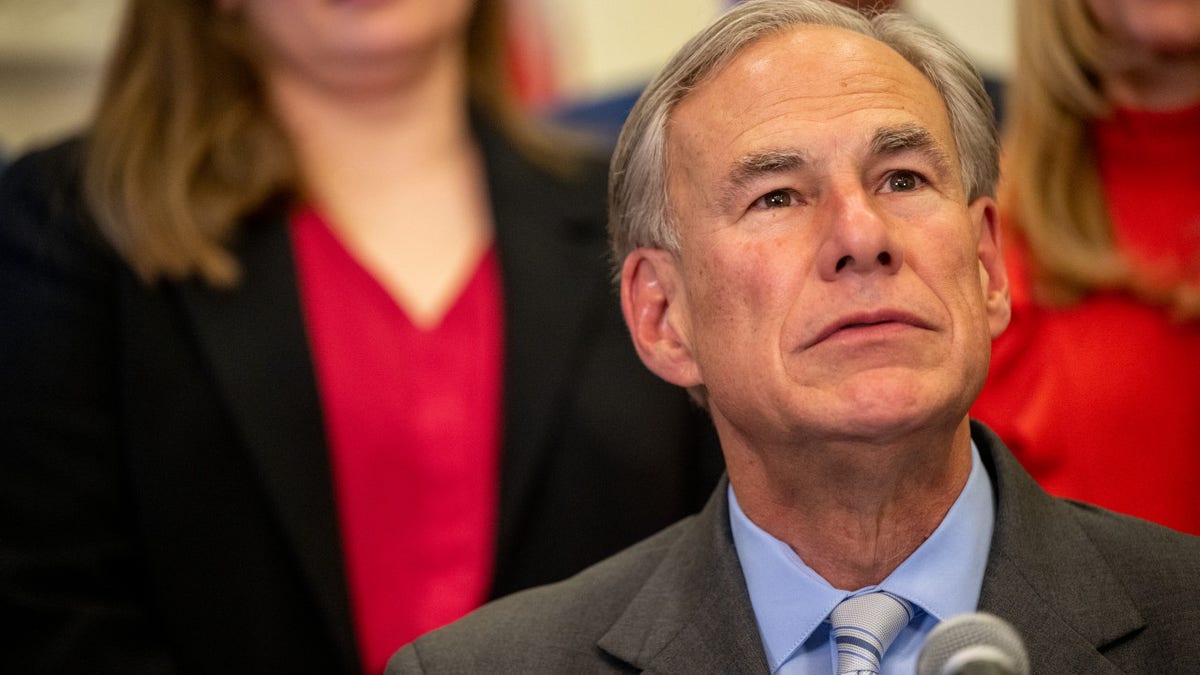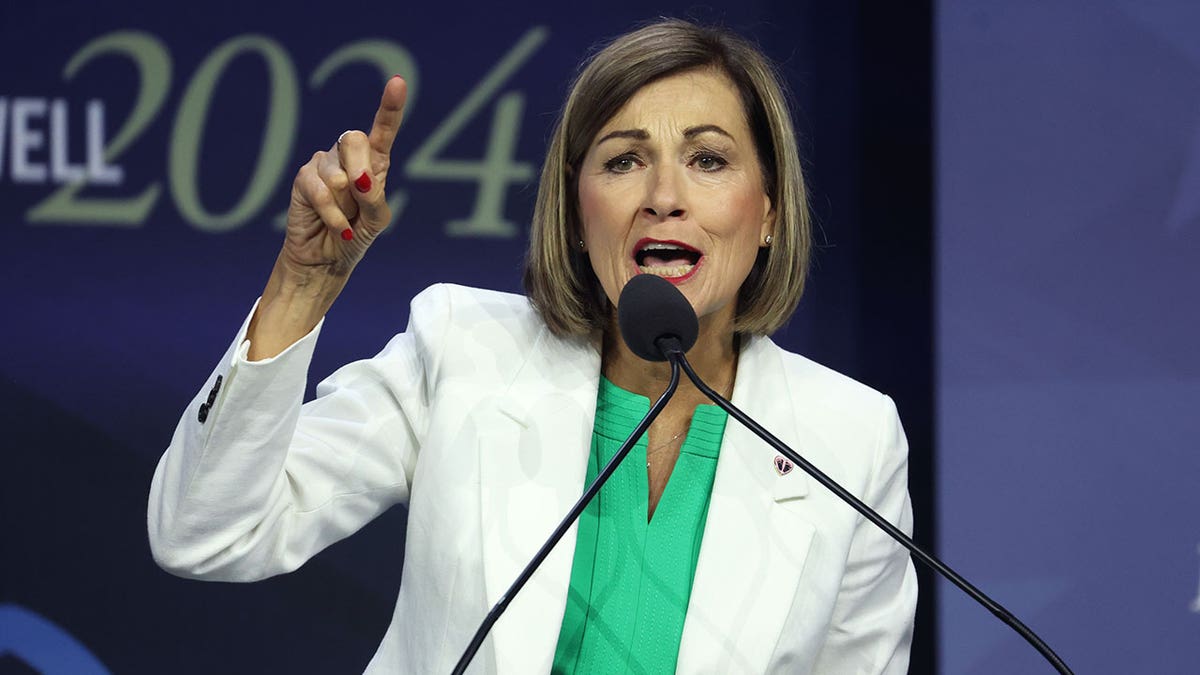The Wyoming Legislature last week passed a school choice bill after past failed attempts to make that happen in the Cowboy State.
Democrats are ‘owned’ by the teachers unions: Corey DeAngelis
American Federation For Children Senior Fellow Corey DeAngelis joined ‘Fox & Friends Weekend’ to discuss the Biden administration’s latest warning that AI could be used to spy on teachers.
Rural Republican lawmakers are beginning to shift on school choice after historically blocking efforts.
The Wyoming legislature earlier this month passed a school choice bill after past failed attempts to make that happen in the Cowboy State.
Lawmakers hope to provide education saving accounts for all K-12 students to use taxpayer dollars to have alternatives to local public schools such as charter schools, private schools, and homeschooling.
The bill comes after two bills were introduced and swatted down during the 2023 legislative session. Republican Governor Mark Gordon vetoed a different charter school bill that passed earlier this year.
The Wyoming Education Association expressed hope that Gordon would strike this bill down.
URBAN CHARTER SCHOOLS BODE SUCCESS FOR LOW-INCOME, NON-WHITES, COLLEGE ENROLLMENT: REPORT

The state capitol in Cheyenne, Wyoming on October 21, 2023. (Bonnie Jo Mount/The Washington Post via Getty Images)
"Whether or not he does, it's striking that the legislature in one of the most rural states in America passed a robust school choice bill," American Federation For Children senior fellow Corey DeAngelis wrote in the Wall Street Journal.
"Rural red-state Republicans, backed by teachers unions, have long opposed school choice. They say their constituents don't want it because there aren't many private schools in their districts," he said.
DeAngelis, a fellow at Stanford University's Hoover Institution, explained further, "Yet the nine most rural states in the country (as measured by population share) now have some form of private school choice."
He continued, "Maine and Vermont have the oldest private-school voucher programs in the U.S., both enacted in the late 19th century for students who live in rural districts without public schools. Both programs allow state funding to follow the child to the public or private school his family chooses."
"The school choice stampede through rural states and the political success of education freedom supporters in rural districts should put to bed the myth that rural voters don’t want school choice once and for all," DeAngelis told Fox News Digital.
Wyoming’s advancement toward a universal school choice bill is part of a trend of red states passing the measure. Nine states passed universal school choice bills last year and Alabama made the move last week.
As Wyoming seeks to be the eleventh state to pass universal school choice, Texas struggled to join the phenomenon due to rural GOP lawmakers, some who were backed by the teachers' unions.
Teachers unions traditionally reject school choice measures since they claim it debilitates public school funding and resources as taxpayer funding is siphoned off due to the existence of other education alternatives.
Per the Texas Tribune, the state senate tried different ways to pass an education savings account program, but Democrats and rural Republicans blocked their efforts.
State Rep. Travis Clardy, in particular, voted against school choice and told media outlets that he is not convinced vouchers are a good move for public schools in rural areas where there are not many options like there are in suburban and urban communities.

Gov. Greg Abbott on October 31st, 2023 issued a proclamation stating that universal school choice" would include additional school finance, such as teacher pay raises, school safety, and special education" to appease concerns over the impact of public schools. (Brandon Bell/Getty Images)
Clardy is one of the 24 GOP lawmakers who voted against ESAs and has been at odds with Abbott over school choice.
Clardy received a donation of $250 from the Texas AFT in 2020. Clardy, a 12-year incumbent, was defeated in this month's primary by Joanne Shofner in House District 12.
Jason Bedrick, education policy fellow at the Heritage Foundation, told Fox News Digital that rural voters are "waking up to the fact that there are issues in their schools too, and there are more options in rural areas than most people think."
"As we note in the report, opponents of school choice often say that 1) there are no options besides the public schools in rural areas, and 2) so many kids would leave for these options that the public schools in rural areas would collapse. Those statements cannot both be true simultaneously, but they can both be false. And, indeed, they are false."
He explained further, "As we document, there are more options in rural areas than most people realize, and with school choice policies in place, there is growth in the private options in rural areas. Additionally, far from destroying rural public schools, the evidence suggests that more choice and competition improves the quality of the public school system in rural areas, just as it does in urban and suburban areas."
According to a poll from the University of Houston, it reported that 60% of Republican primary voters would be less likely to vote for an incumbent Texas House representative who opposed school choice measures in 2023.
The report stated, "The negative impact on the vote intention for a House incumbent who voted against school choice/vouchers does not vary by region, with 63% of GOP primary voters in urban and suburban counties less likely to vote for the incumbent compared to 58% in rural and semi-rural counties."
Nine Republican incumbents lost their elections and eight more were pushed into runoffs in the primary last week. Considering the defeat of certain incumbents, the primary election favored Republican candidates who pushed for school choice.
A shift in the Texas legislature could enshrine school choice efforts in the Lone Star State, as GOP primary results indicate that voters favor school choice legislation.
DeAngelis added that the primary results indicate the "biggest political shift towards school choice in Texas history."
"The Texas election is already sending shockwaves all across the country: rural voters want school choice," DeAngelis said to Fox News Digital. "These legislators also knew about the non-binding ballot proposition from 2022 finding that 88% of Texas Republican primary voters supported school choice, but they ignored the will of their constituents. In fact, Representative Glenn Rogers said that the Republican primary ballot proposition result was ‘not valid data’ the same day he voted against school choice last November. He ended up losing by 27 points to Mike Olcott on election night."

Iowa Governor Kim Reynolds signed an unprecedented school choice bill called the Students First Act. (Scott Olson/Getty Images)
Furthermore, the primary results came after a recent report showing donations from teachers' unions supporting Republicans who previously rejected school choice measures.
Although the teachers' unions publicly endorse Democrats, they have shown support for Republicans with a track record of voting against school choice measures.
Campaign finance reports posted by Corey DeAngelis on X show that the Texas AFT donated $25,000 to the PAC "Defend Rural Texas PAC."
DeAngelis told Fox News Digital last year that Texas state lawmakers could face consequences for choosing not to support school choice by being ousted in the next primary election cycle. He foresaw a parallel between Texas and what occurred in Iowa when Gov. Kim Reynolds sought to pass universal school choice legislation.
Reynolds endorsed nine candidates with a pro-parent platform in primary elections, ousting the incumbent GOP candidates who did not support that platform.
Joshua Q. Nelson is a reporter for Fox News Digital.
Joshua focuses on politics, education policy ranging from the local to the federal level, and the parental uprising in education.
Joining Fox News Digital in 2019, he previously graduated from Syracuse University with a degree in Political Science and is an alum of the National Journalism Center and the Heritage Foundation's Young Leaders Program.
Story tips can be sent to
